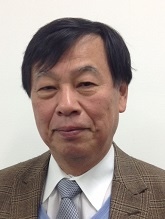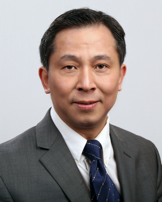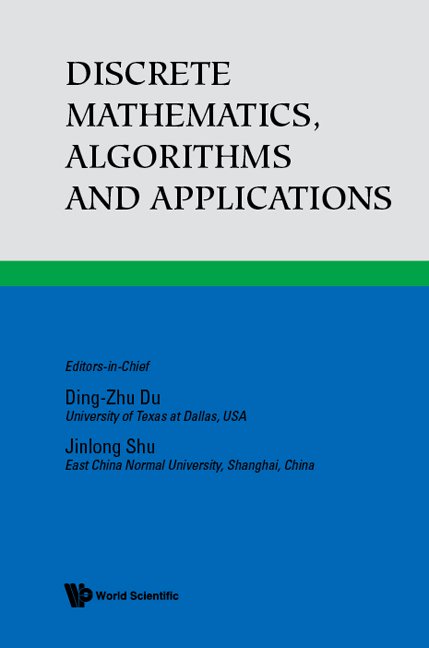Keynote Speakers
Naoki Katoh (Professor, University of Hyogo, Kobe, Japan)
Title: Sublinear Computation Paradigm: Algorithimc Revolution in the Big Data Era Abstract: We proposed a new paradigm called the “sublinear computation paradigm,” in seven-year academic research project named “Foundations of Innovative Algorithms for Big Data” in Japan which started in 2014, In today's rapidly evolving age of big data, massive increases in big data have led to many new opportunities and uncharted areas of exploration, but have also brought new challenges. To handle the unprecedented explosion of big data sets in research, industry, and other areas of society, there is an urgent need to develop novel methods and approaches for big data analysis. To meet this need, we are pursuing innovative changes in algorithm theory for big data. For example, polynomial-time algorithms have thus far been regarded as “fast,” but if we apply an O(n^2) time algorithm to a petabyte-scale or larger big data set, we will encounter problems in terms of computational resources or running time. To deal with this critical computational and algorithmic bottleneck, we require linear, sublinear, and constant-time algorithms. The project is organized into three teams that focus on sublinear algorithms, sublinear data structures, and sublinear modeling. In this talk, we shall illustrate several important results of strong computational and algorithmic interest.
Bio: Naoki Katoh received the B.Eng, M.Eng. and Dr. Eng. degrees in Applied Mathematics and Physics from Kyoto University in 1973, 1975 and 1981, respectively. He was an Assistant Professor during 1981-1982, an Associate Professor during 1982-1990, and a Professor during 1990-1997, respectively, at Department of Management Science of Kobe University of Commerce. From 1997 to March 2015, he was a Professor at Department of Architecture and Architectural Engineering in Kyoto University. From April 2015 to March 2019, he was a Professor at School of Informatics in Kwansei Gakuin University. From April 2019, he has been a Professor at School of Social Information Science. His research interests include the design and analysis of combinatorial and geometric algorithms, In particular, his research intrests are foucsing on combinatorial rigidity theory and evacuation planning problems. In 2011, With Dr. Shin-ichi Tanigawa (currently an Associate Professor of the University of Tokyo) he proved the molecular conjecture which had been a big open problem in the field of combinatorial rigidity theory. He had been a Research Director of JST-CREST for Innovative Algorithms for Big Data. In this project, we have focused on sublinear-time algorithms for big data and its implementation to establish sublinear paradigm for big data algorithms. He published more than 150 journal papers and more than 100 international conference papers. He also published a book, "The Resource Allocation Problems: Algorithmic Approaches" from MIT Press, in 1988. In 2000, he received "Hao Wang" Award. He is a member of IPSJ, IEICE, OR Soc. Japan, Japan SIAM, and ACM.
Hui Xiong (Professor, Hong Kong University of Science and Technology (Guangzhou), China)
Title: Human and Social Nature in AI Algorithms Abstract: Algorithms have been inspired by nature and human life and have been a part of human technology ever since the stone stage. As the computers have been widely used for solving everyday human problems, algorithms are fast-evolving and it becomes naturally to think algorithmically about the human and nature world. In this talk, I would like to provide a humble and immature view of human and social nature in algorithms. In particular, I would like to bridge the connections between the fundamental principle and properties of these algorithms and the nature in Chinese culture, such as I-ching and Daoism, which conceive the natural world as a self-generating, complex arrangement of elements continuously changing and interacting. For example, the balance principle in I-Ching is frequently observed in algorithm design, such as the explore/exploit trade-off for finding the balance between trying new things and enjoying the favorites and the balance between recall and precision.
Bio: Professor Hui Xiong currently holds several esteemed positions at the Hong Kong University of Science and Technology (Guangzhou), including Chair Professor, Associate Vice President for Knowledge Transfer, and Head of the Artificial Intelligence Thrust. Before joining HKUST, he also served as Chief Scientist (Smart City) and Deputy Dean of Baidu Research Institute, leading five research labs in his charge. He has received numerous honors and awards, including being elected as Fellow of the American Association for the Advancement of Science (AAAS), Distinguished Scientist of the Association for Computing Machinery (ACM), and Fellow of the Institute of Electrical and Electronics Engineers (IEEE).







